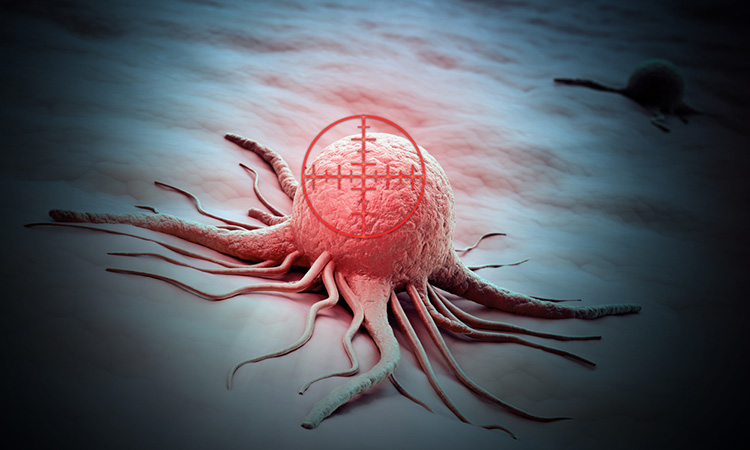LEAP proton therapy could target cancer cells that resist treatment
Posted: 18 February 2021 | Victoria Rees (Drug Target Review) | No comments yet
A proton therapy that targets cancer cells which are resistant to treatment has shown success, sparing surrounding healthy cells.


Researchers have developed a novel proton therapy technique to specifically target cancer cells that resist other forms of treatment. The technique is called LEAP, an acronym for “biologically enhanced particle therapy.” The method was developed at the Mayo Clinic, US.
“The human body receives tens of thousands of DNA lesions per day from a variety of internal and external sources,” said Dr Robert Mutter, co-principal investigator of the study. “Therefore, cells have evolved complex repair pathways to efficiently repair damaged DNA. Defects in these repair pathways can lead to the development of diseases, including cancer.”
According to the researchers, defects in the ATM-BRCA1-BRCA2 DNA repair pathway are commonly observed in cancer. Breast and ovarian cancer mutations in BRCA1 and BRCA2 repair genes are the most common cause.
The team studied a novel method of delivering proton therapy to target tumours with inherent defects in the ATM-BRCA1-BRCA2 DNA repair pathway.
“We compared the effects of delivering the same amount of energy or dose into cancer cells using a dense energy deposition pattern with LEAP versus spreading out the same energy more diffusely, which is typical of conventional photon and proton therapy,” said Mutter. “Surprisingly, we discovered that cancers with inherent defects in the ATM-BRCA1-BRCA2 pathway are exquisitely sensitive to a new concentrated proton technique.”
The researchers found that surrounding normal tissues were spared and their full complement of DNA repair elements remained intact.
“We also found that we could rewire the DNA repair machinery pharmacologically by co-administration of an ATM inhibitor, a regulator of the body’s response to DNA damage, to make repair-proficient cells exquisitely sensitive to LEAP,” said Dr Zhenkun Lou, co-principal investigator of the study.
The distinct physical characteristics of protons allow radiation oncologists to spare nearby normal tissues with superior accuracy, compared to conventional photon-based radiation therapy.
“LEAP is a paradigm shift in treatment, whereby newly discovered biologic responses, induced when proton energy deposition is concentrated in cancer cells using novel radiation planning techniques, may enable the personalisation of radiotherapy based on a patient’s tumour biology,” said Mutter.
The findings are published in Cancer Research.
Related topics
Oncology, Technology, Therapeutics
Related conditions
Breast cancer, Cancer, Ovarian cancer
Related organisations
Mayo Clinic
Related people
Dr Robert Mutter, Dr Zhenkun Lou


